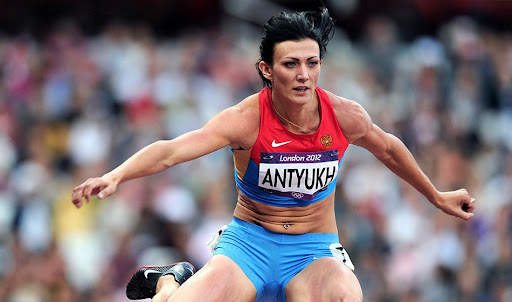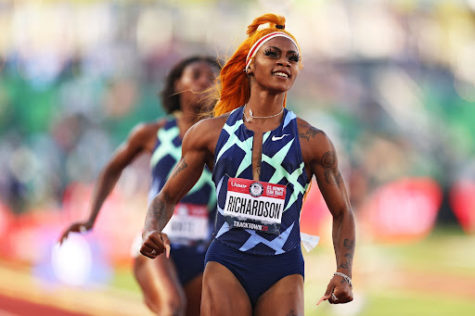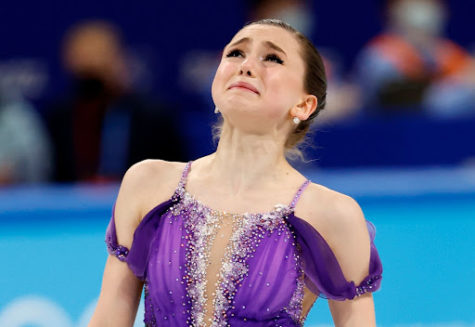The Problem With Olympic Doping

Natalya Antyukh jumping over a hurdle in the 2012 London Olympic 400 meter hurdle race. Taken by Mark Shearman.
In the past 54 years of Olympic history, 149 medals have been stripped from athletes due to doping offenses. This week, Russian Olympic hurdler Natalya Antyukh was stripped of her gold medal from 2012 after she was caught using a prohibited substance at the time of the race.
Former silver medalist Lashinda Demus, who was just 0.07 seconds behind Antyukh, is now taking home the gold medal she deserved all those years ago.
These allegations hit home for Varsity Track athlete Michelle Mcleod.
“As a runner myself… it is very disappointing to see,” Mcleod expressed. “I have to work and train very hard… but seeing people just try to take a short way out… it’s unfair to everybody else.”
This situation regarding Antyukh is recent news but has not had massive media coverage. It seems that doping occurs so frequently in the Olympic world, that it’s no longer widely talked about. The most recent doping scandal that made big headlines was 16-year-old Russian figure skater Kamila Valieva testing positive for a banned heart medication, Trimetazidine (TMZ) during a competition in mid-February of this year. The effects of the medication include higher levels of endurance, energy and faster recovery.

Even with the medication’s unfair advantage, a decision was made that Valieva would be allowed to compete in the proceeding Olympics with no penalty. This caused a public uproar. Why is it that the highest level of competitive sports does not seem to grasp a basic sense of fairness and sportsmanship?
Sha’carri Richardson, who was not allowed to compete in the Olympics after her own doping scandal back in June of last year, was outraged by this. She expressed her frustrations on Twitter, saying, “The only difference I see is I’m a black young lady.” Here.
Richardson had vast support from the mainstream media. Her penalty came from smoking weed before her race, where she broke the women’s 100-meter dash world record. Her mother passed away a week before this race, and she says she turned to marijuana as a coping mechanism.
Many medical professionals and fellow athletes with a history of using recreationally publicly supported Richardson, making a point that cannabis is not an enhancer of performance in athletics.
This situation has left audiences torn between discrepancies. While it’s evident athletes may need medication or medicinal drugs for certain situations, it’s hard to tell at times if they’re really in need of it or just attempting to abuse the system.

Lambert’s three-sport athlete Evie Foster feels that the health of athletes is often overlooked and too quickly assumed to be satisfactory.
It’s important to give athletes’ health conditions the same alertness we give the rest of the population, and if they need a certain medication, the purposes for it should be listed honestly and from the start.
“I think as long as the drug has been proven to not help them physically [in the Olympics]… then [it] should be fine,” Evie stated.
There’s still a long way to go with doping scandals in the Olympic world. Athletes abiding by the rules should not have to be put at an unfair advantage when their fellow competitors dope.
Your donation will help support The Lambert Post, Lambert High Schools student-run newspaper! Your contribution will allow us to purchase equipment and cover website hosting costs.

















